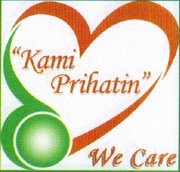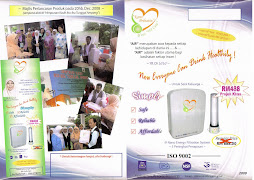In pictures: Muslim women preachers
Sun Jun 11, 2006 6:48 am (PST)
http://news.bbc.co.uk/1/shared/spl/hi/picture_gallery/06/
middle_east_muslim_women_preachers/html/1.stm
In pictures: Muslim women preachers Magda Amer preaches in one of Cairo’s leading mosques. She is part of an emerging trend of female Muslim preachers in Egypt. Two years of study are required to obtain the necessary licence, though there is no financial backing from the government for her work. At the time I was wearing mini skirts and had long hair. Veiling was the most difficult decision of my life. Veiling was a huge struggle for me. My mother and all the family were against me. I had to fight to convince everyone, I had to be strong. I didn’t want people to look at me for my body and my hair. In the street I’m not bothered like I was before, and I feel peace inside.
When I started to veil, men respected me.I realised that Westerners had a very bad image of Muslim women. So I decided to study and I learnt how to read the Koran properly. I did a two-year course at the Institute of Preaching in Egypt. My father was against me becoming a preacher. He said I should earn my living, because I don’t get paid for doing this.I preach to women in a mosque. I talk about Islamic legislation, the five pillars of Islam, marriage, divorce, women’s rights, inheritance laws. I can’t stand the stereotyping about Islam because it is not the truth. The West believes that women in Islam are suppressed, oppressed, deprived of their rights. This is not true. Nothing has supported women and given rights to women like Islam.
My sermons deal with women’s issues, things that women can’t ask the sheikh. Openly sexual stuff even – menstruation, menopausal problems, vaginal dryness, what happens when a woman doesn’t reach her desire, how some men only think there is vaginal pleasure and don’t know about clitoral pleasure. A lot of women are very shy and I say, "Don’t be shy, it is your right".My house is a library. I read, read, read. I also write books on Islamic legislation, ablution, and rights in Islam. I am not a feminist. I see feminism as a western thing. Of course, I’m interested in women’s rights, but according to Islamic legislation. I would never ask for a woman to be equal to a man on every level. We are different physiologically. We complement each other.This is my second marriage, which is very unusual in Egypt.
I was married for 30 years and my husband had been chosen for me. I wasn’t happy - he wasn’t religious and we weren’t matched. I asked him for divorce. It was hard but I don’t regret it. I decided I wanted to live for myself, to think about me.It has to be the true veil. Now in Egypt it is not the true veil – it is worn very tight round the face and the colours of the veil are very showy. The purpose of the veil is not to show off. Also, women should not attract attention by wearing bright colours and tight clothes. They can be chic but they should not be showy. The young generation want to show that they’re independent. They risk losing everything.The part that makes me happiest about my life is to feel that I’m a woman. I don’t want to lose this. My femininity is important to me. Once I open the keys of my house, though I’m educated, I play the role of a wife. I cook, look after my children, my husband. I play my role as god has created me.My priority in life is my calling to Islam. I can’t compromise. Writing books, defending Islam, answering misconceptions. There is a big difference between the misapplication of religion and the truth. If you want to criticise someone, learn the truth first. Some questions cannot be answered by men. I feel it is my job. I hope that I’m a role model for these women.
Words and photos by Holly Pelham
















No comments:
Post a Comment